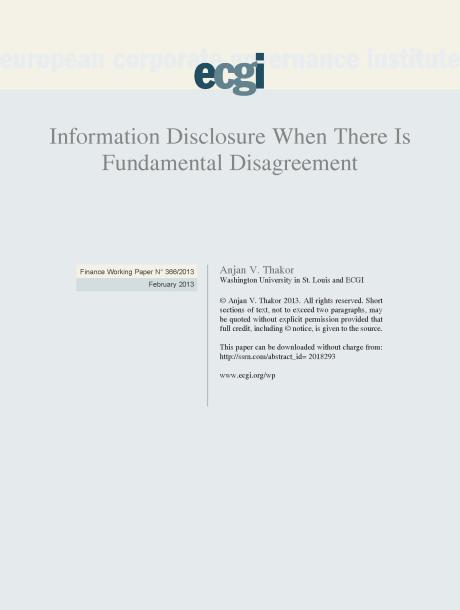
Information Disclosure When There is Fundamental Disagreement
Abstract
This paper develops a theory of information disclosure with disagreement, and then examines its implications for financial and non-financial firms. I build a model in which managers of firms are voluntarily communicating objective and subjective information, and prior beliefs about the strategy to maximize project value are rational but heterogeneous, creating the possibility of fundamental disagreement. Four main sets of results are derived. First, not all firms disclose (subjective) information about strategy that can potentially increase disagreement with investors. This lack of disclosure occurs even though there are no exogenous communication costs, and ?proprietary signaling costs? are precluded because information is being communicated only to the financial market and not to the firm?s product-market competitors. Second, more valuable firms voluntarily disclose less information in equilibrium. Third, information disclosure has real consequences because it interacts with project values, investor relations and corporate governance. Thus, this paper provides an economic rationale for higher-quality firms to withhold more strategic information, and this has pervasive consequences. Fourth, banks, facing greater withdrawal risk than non-financial firms, optimally disclose less strategic information than non-financial firms. Regulations that compel banks to increase information disclosure have the unintended consequence of making banks more fragile. Hence, the analysis exposes a potential tension between information transparency and greater fragility in banking. Improvements in corporate governance will lead banks to voluntarily disclose less strategic information, become less fragile, keep less on-balance-sheet liquidity, and make longer-maturing loans.






